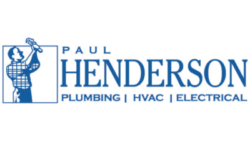If you have children, you know that wet wipes come in handy, especially during the potty-training phase. But while convenient, wipes that are labeled “flushable” might not work as intended. In the end, convenience will cost you big time, as your house’s plumbing system will suffer.
Seven years ago, IndyStar reported on the risks of flushing those so-called flushable wipes. Unfortunately, many consumers in Central Indiana remain oblivious of how the practice jeopardizes our plumbing and sewage systems.
In the article, the reporter explained that sewage utilities nationwide were urging people to avoid flushing anything other than toilet paper down.
Turns out that wipes branded as “flushable” can actually be quite the opposite.
According to a then-spokeswoman for Citizens Energy Group, Indianapolis utilities were suffering a series of blockages and clogged pumps. And the culprit turned out to be flushable wipes.
Trusting consumers who rely on labels simply take the claim that the products break down easily at face value. This makes several Hoosiers more likely to switch from toilet paper to personal care moist napkins, as they believe that flushable wipes are a more hygienic alternative to toilet paper. However, utilities across the nation disagree.
With crew members witnessing the wipes binding with improperly disposed of grease, provoking blockages, utilities continue to ask consumers to rethink their habits. If not for the sewage system’s sake, for their plumbing’s (and wallets).
Are ‘Flushable’ Wipes Safe For Your Plumbing?
The wet-wipe industry, a $7 billion-a-year enterprise, claims that the issue many utilities have suffered in the past stems from consumers misreading the labels.
They claim that when products come with “flushable” labels, they break down well in the sewer. However, consumers end up flushing wipes that aren’t labeled safe for the toilet.
Despite their claims, some contend that even the personal napkins labeled as “flushable” aren’t safe. Wipes made from fibrous materials such as cellulose from wood pulp often contain polymers. Together, those ingredients produce fibers that are thicker than toilet paper.
Whereas toilet paper’s fibers begin to disintegrate once flushed, wipes stay structurally intact for much longer. This can lead to problems with your house plumbing, the sewer main, and other sewage systems.
As more people use these wipes, they end up accumulating in the local sewer mains, causing water and waste backup that will slow your house’s drains. In worse-case scenarios, the problem might even prompt sewage to seep into your home. Nobody wants that!
But how should you proceed if you want to make sure your plumbing is safe?
Keep a Trash Can Around
In order to ensure your house’s plumbing system isn’t being put under unnecessary stress, remember that the best way to avoid flushing unwanted items such as wipes is to keep a trash can easily accessible in every bathroom of your home.
If you are potty training a child, teach them to throw wipes in the can. It might take some time to make sure everyone in your house knows not to flush the wet wipes but it will certainly pay off in the end.
If you don’t usually make use of trash cans because of the odor, consider purchasing a small can with a lid that seals. Over time, this simple move will save you big bucks.
If you have plumbing concerns, we’d love to help you out. Contact us at Paul Henderson Plumbing for help regarding sump pumps, water softeners, water heaters, hose and pipe repairs, and general plumbing. Don’t hesitate to call us at 317-872-3535.


